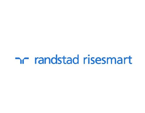M.Tech Electronics and Communication Engineering (VLSI and Embedded Systems)
In collaboration with Synopsys
Programme Overview
The M.Tech in Electronics and Communication Engineering (VLSI and Embedded Systems) at MIT-WPU is a specialised programme designed to equip students with advanced knowledge and skills in the rapidly evolving fields of VLSI design and embedded systems.
This two year postgraduate programme integrates theoretical concepts with practical applications, covering essential topics such as digital system design, microcontrollers, and communication technologies. Students engage in hands-on learning through laboratory sessions, projects, and industry internships, enabling them to apply their knowledge in real-world scenarios.
The programme emphasises the development of critical thinking, problem-solving abilities, and teamwork skills, preparing graduates for diverse roles in industries like telecommunications, automotive, and consumer electronics. With a focus on innovation and research, students are encouraged to explore cutting-edge technologies and contribute to advancements in electronics engineering. Graduates emerge as proficient engineers ready to tackle contemporary challenges in VLSI and embedded systems.
Major Tracks
- Embedded System Design
- Robotics and Automation
- Analog and Digital VLSI Design
- Advanced VLSI Design
- Deep Learning
- Micro-Electromechanical Systems
Duration & Fees
Duration
2 Years
Applications Open for 2026
Fee Per Year
₹ 2,25,000
Scholarship
| GATE Score | MIT-WPU Stipend per month | Workload / Teaching Assistantship in MIT-WPU |
|---|---|---|
|
Eligible General Category GATE Score for stipend as per AICTE norms |
₹ 12,500/- (For the entire duration of the programme) |
8 hours workload per week |
|
GATE Score 15 and up-to Eligible General Category cut-off |
₹ 8,000/- (For first year only) |
6 hours workload per week |
|
GATE Score 10 to 14.99 |
₹ 6,000/- (For first year only) |
4 hours workload per week |
Note:
- During Working Hours, M.Tech Students will be considered for 'on campus job' as per Policy
- Stipend will be effective only after receiving complete fees for the first year.
- In case student is receiving any government scholarship/stipend, University stipend will not be applicable.
Terms & Conditions Apply:
- All Scholarships are awarded on a First Come First Serve basis. All Scholarships are awarded as fee adjustments.
- To continue the scholarship for the entire duration of the programme, a minimum level of the academic score has to be maintained at an 8 CGPA across all semesters, attendance is to be maintained at a minimum of 80 percent, with no live backlogs in any subject/programme and no semester break, and there should be no disciplinary action against the student.
For more detailed information visit our website: https://mitwpu.edu.in/scholarships
Eligibility
Minimum 50% aggregate score in graduation (4 years) of relevant Engineering Branch from UGC approved University or its equivalent (at least 45% marks, in case of Reserved Class category candidate belonging to Maharashtra State only)
AND
GATE Qualified (Obtained a positive score in GATE 2025 / 2024 / 2023) /MIT-WPU CET 2025 /PERA CET 2025
OR
Sponsored Candidate (Need 2 years of work experience after graduation, in field related to graduation).
Selection Process
The Selection process for this Programme is based on the merit of MIT-WPU CET 2025 score/ PERA CET 2025 score or GATE 2025/ 2024/ 2023 score & Personal Interaction conducted by MIT-WPU.
For admission under sponsored category, candidate should have minimum two years of fulltime work experience in a registered firm/ company/ industry/ educational and/or research institute / any Government Department or Government Autonomous Organization in the relevant field in which admission is sought. Sponsorship Certificate is mandatory for the admission.
(The exact date and time of the online Examination and Personal Interaction will be communicated to the candidate once scheduled.)
*Note: MIT-WPU retains the right to make changes to any published schedule. Any other criterion declared from time to time by the appropriate authority as defined under the Act.
Programme Highlights
- The programme offers a specialised curriculum including important topics such as VLSI design, embedded systems, digital signal processing, and communication systems, for a robust foundation in both theory and practice.
- Students engage in practical hands-on training through laboratory sessions and projects, making them apply theoretical concepts to real-world applications.
- The programme focuses on developing industry-relevant skills including proficiency in modern design tools and methodologies for VLSI and embedded system development.
- Students engage in research initiatives that promote innovation and exploration of new technologies in electronics and communication engineering.
- The programme is led by a team of experienced faculty members with strong academic backgrounds and industry exposure.
- MIT-WPU provides dedicated placement assistance, helping students connect with leading companies in the electronics and communication sector for internships and job opportunities.
Career Prospects
VLSI Design Engineer
Embedded Systems Engineer
Firmware Developer
Research and Development Engineer
System Architect
Telecommunications Engineer
Programme Outcomes
- Students gain advanced technical knowledge with a deep understanding of VLSI design principles, embedded systems architecture, and advanced communication technologies.
- With the help of modern tools and methodologies, students gain proficiency in designing, implementing, and testing VLSI circuits and embedded systems.
- Graduates are ready to pursue independent research, contributing to innovation in electronics and communication engineering through advanced projects and solutions.
- Students gain strong analytical and critical thinking skills that help them identify problems in electronic systems and come up with effective solutions.
- Graduates are equipped to work with cross-functional teams, using strong communication skills and the ability to collaborate on complex projects.
- Students exhibit ethical and professional responsibility in their work, creating impact through responsible engineering solutions.
Placements & Recruiters
100% Placement Assistance
Top Recruiters
FAQs
The M.Tech Electronics and Communication Engineering programme in VLSI and Embedded Systems offers specialisations in fields such as:
- VLSI Design
- Embedded System Design
- Digital Signal Processing
- Microcontrollers, and
- System-on-Chip (SoC) design
Pursuing M.Tech ECE in VLSI and Embedded Systems prepares graduates for technical roles in cutting-edge industries like
- Telecommunications
- Consumer Electronics
- Automotive Systems
- Internet of Things
- Research
The Selection process for this Programme is based on the merit of MIT-WPU CET 2025 score/ PERA CET 2025 score or GATE 2025/ 2024/ 2023 score & Personal Interaction conducted by MIT-WPU.
- Industry-oriented curriculum with hands-on lab experience
- Exposure to advanced research and state-of-the-art infrastructure
- Opportunities for interdisciplinary research and industry collaborations
- Focus on both theoretical and practical aspects of VLSI and Embedded Systems.


















 admissions@mitwpu.edu.in
admissions@mitwpu.edu.in
